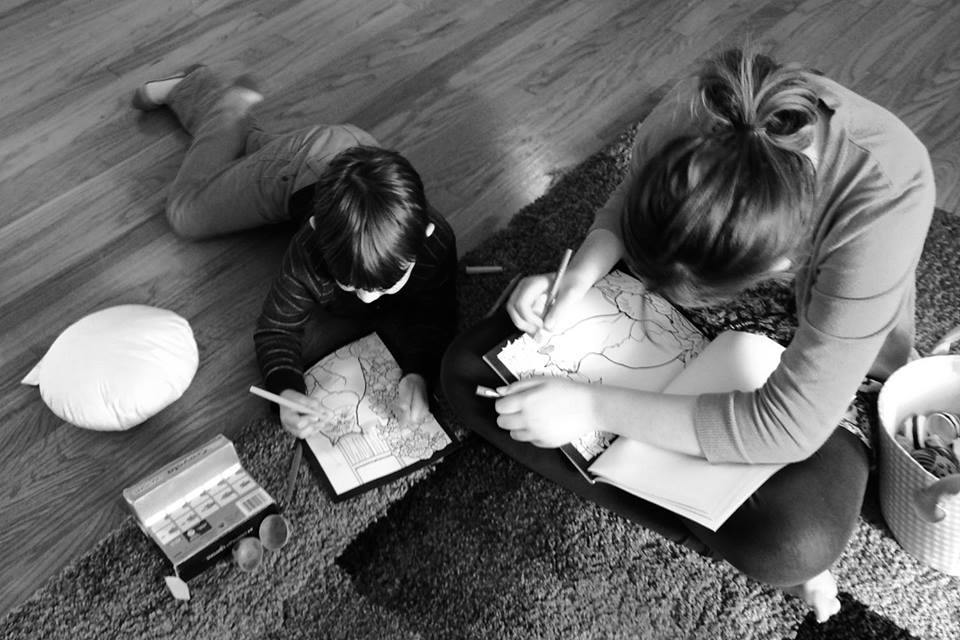I just finished watching the documentary “Stevie” and I have some feelings I’m trying to process. The movie was made by a man who was involved in a “big brother” program that connected him with a young man named Stevie. About a decade later he wanted to find out what Stevie had been up to since they lost contact. What he finds is disturbing and incredibly sad.
You can feel the “big brother” struggle to acknowledge his own role in being one more person in a LONG line who eventually gave up, moved away, or became overwhelmed in trying to deal with Stevie and his needs. The movie chronicles the adults involved in Stevie’s story and how he was hurt time and again. The sad (but entirely predictable) ending of this story is that Stevie became the kind of person who hurts others, seemingly without remorse.
It’s a tragic story and there are many moments where grief is an appropriate response, but I was not prepared for the emotional gut punch of one particular scene in the movie.
Right before being sentenced for his crimes, Stevie decides he wants to find his first foster family who he lived with as part of a group home experience. They were the people he connected with best and it seems he had lots of happy memories with them. Watching their reunion– his foster mother’s motherly way with him, his reticence to tell them about his latest crimes, but his compulsion to confess what he had been up to in the years since they parted. . . it did something to me. Listening to them talk about how they loved him and how sad they were that they couldn’t do more. . . I know those feelings.
The 5 years we spent with our group home kids were years that I treasure. I loved our boys and LOVED being their mom in all the ways I could. I have so many happy memories of our time with them, but I know I only had a small window into their lives. Much of it was lived before I knew them and after they left our home (or after we left the group home). It had not occurred to me until recently that the efforts we made to teach them to trust and to help them experience healthy love may have ended up causing them great pain.
We threw ourselves into teaching them we were safe and showing them what it felt like to be loved by stable people. And then we became next in the line of unstable people in their lives. This has shaken me. Did we teach them to trust just so they could give that trust to untrustworthy people? Did our love, nurturing and stability create a longing in them we were then unable to meet?
I’m haunted by the idea that I broke the hearts of kids I loved.
I know what I have to tell myself and what I have to tell you– that love is always the right choice. I know many of our boys felt confident that we loved them and that they were lovable. My hope is that they are better men because of that knowledge– more capable of receiving and giving love than they would have been otherwise. I pray the pain we opened them up to was offset by the good we did, but it has been easier for me to just focus on the good and how much I loved my time with them than to acknowledge the hard. A decade later, I wonder what it cost those precious kids to experience a temporary respite from their complicated lives.
My worry in even confessing my own ambivalence about this is that I’ve seen what it costs kids to never experience love. I’ve seen how people who would make great foster parents stay away from “the system” because they don’t want to suffer the pain of attachment and loss. That means kids are potentially placed in homes with people who don’t love them enough to risk attachment and pain. When I think of the kids I’ve loved and imagine them spending those years instead with people who couldn’t be bothered to love them. . . it’s an unbearable thought. I don’t want my struggles here to be one more reason passionate and loving adults keep themselves from loving kids who need them. I just want us to think through what it means to commit ourselves to these kids– how are we communicating that our love for them doesn’t end when they leave our homes? That we will ALWAYS love them and be people they can trust? That we are FOR THEM even when the rest of the world seems against them.
It is humbling and sad to admit that I am part of the problem. In an effort to help, I have become another person who loved them and failed them. Even if that wasn’t what actually happen, how does it not read like failure to a child who can’t understand all the adult complexities?
This is the broken and fallen world of foster care, and yet I don’t feel like I can walk away. This perspective adjustment tempers my enthusiasm and helps clear my rose-colored glasses about what we’re able to offer temporary kids. We do our best in a situation we can’t control, but even when we do the right thing, kids may suffer. It shouldn’t stop us from doing what’s right, but it should allow us to respond in humility and compassion when those kids want to someday talk to us about their experiences. They may be short-term placements in our lives, but they are not short-term people. Our decisions have longterm consequences, even if we don’t see them.


4 Comments
Leave a reply →